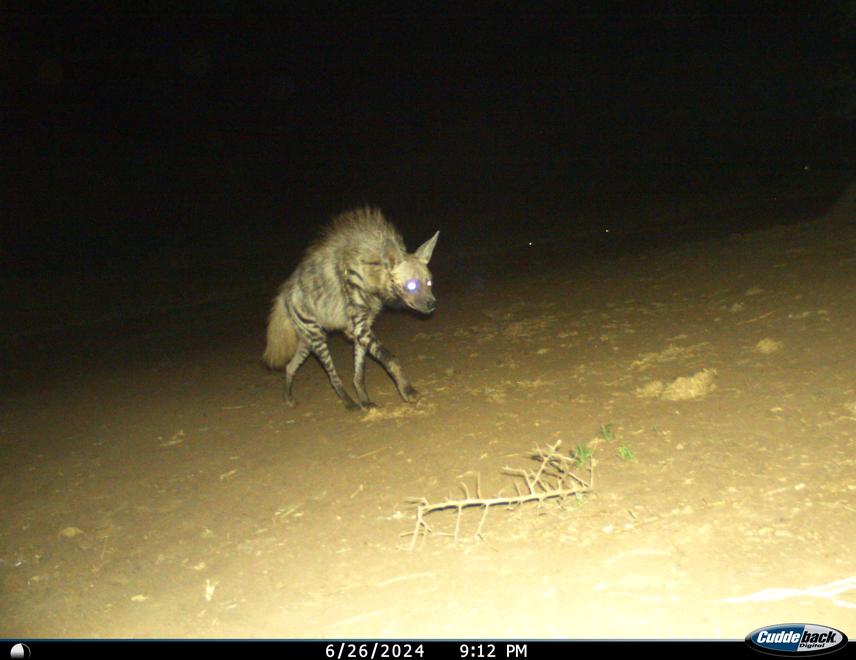Justine Robert Lukumay
Other projects
15 Feb 2023
Conservation of Striped Hyaena through Improved Livestock Enclosures and Education Program in Maasai Steppe, Tanzania
In our recent study conducted in northern Tanzania's Tarangire–Manyara Ecosystem (not published yet), camera traps revealed a disturbingly low number of striped hyena sightings. The study identified human–wildlife conflicts, habitat loss, lack of community awareness about the species and its role in the ecosystem, and widespread poverty as the main factors contributing to the species' decline across the landscape. This stark reality emphasises the urgent need for further research and conservation efforts in the area.

A striped hyena captured on a camera trap in June 2024 during the first survey. © Edward Philipo, TACCEI.
Building on previous work, this project aims to address the decline in striped hyena populations by increasing awareness of their role in the ecosystem, empowering local communities, and supporting habitat protection to promote long-term coexistence.
The project will be carried out within and around the Randilen Wildlife Management Area (RCWMA), a community-owned and managed protected area in northern Tanzania. The WMA is a crucial part of the Tarangire–Manyara Ecosystem (TME), serving as an important wildlife corridor and dispersal zone for many species migrating between national parks. The area is known for its biodiversity importance and ecological connectivity, making it vital for conserving large carnivores like the striped hyena.
Despite its ecological value, the site faces growing threats from habitat loss caused by deforestation, overgrazing, poaching, and frequent human–wildlife conflict. These threats not only put wildlife at risk but also threaten the long-term health of local communities. To tackle these issues, the project will adopt a three-pronged approach:
1. Scientific monitoring: Continuing population and distribution studies of the striped hyena to inform conservation strategies.
2. Community empowerment: Promoting alternative livelihoods such as beekeeping for youth and poultry farming for women, reducing dependency on extractive natural resource use.
3. Conflict mitigation and training: Enhancing capacity through training in sustainable practices, entrepreneurship, and environmental stewardship, while discouraging harmful activities like charcoal production, poaching, and unsustainable forest use.
Supporting over 200 individuals directly and reaching around 5,000 people indirectly, the project helps ease pressures on the ecosystem while encouraging coexistence between people and wildlife. In doing so, it promotes the long-term conservation of a threatened habitat and bolsters the RCWMA’s role as a buffer and corridor within a larger landscape of conservation significance.